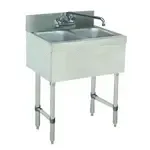What Is a Sommelier? Uncorking the Role of a Restaurant Wine Expert
In the world of fine dining, few roles exude the same mystique and elegance as that of the sommelier. If you've ever dined at a high-end restaurant and been guided through the wine list by a knowledgeable, poised professional, you've likely encountered a sommelier. But what is a sommelier, exactly, and what makes their job so essential to a successful restaurant experience?
This article explores the role of a restaurant sommelier, how they influence the guest experience, their impact on the restaurant economy, and what it takes to pursue this prestigious career.
What Is a Sommelier in a Restaurant?
At its most basic definition, a sommelier is a trained and certified wine professional, typically working in fine dining establishments. The term originates from France, and in traditional usage, it referred to someone who managed wine cellars. In modern settings, the sommelier’s responsibilities have expanded far beyond merely recommending a red or white wine.
A restaurant sommelier is not just someone who knows wine—they are experts in wine and food pairings, global wine regions, varietals, service etiquette, and even the science of tasting. They are also increasingly responsible for curating beverage programs that include spirits, cocktails, sake, and even craft beer, depending on the establishment.
What Does a Sommelier Do in a Restaurant?
So, what does a sommelier do in a restaurant on a daily basis?
Wine List Curation
One of the key tasks of a sommelier is building and maintaining the restaurant's wine list. This involves selecting wines that match the cuisine, the restaurant’s brand, and its target clientele. Sommeliers often work closely with chefs to create a list that enhances the overall dining experience.
Wine and Food Pairing Recommendations
When guests dine in a fine restaurant, they may ask the sommelier for advice on which wine pairs best with their meal. This is where the sommelier shines. They assess the flavors, textures, and aromas of both food and wine to recommend ideal pairings that elevate the dish and the drink alike.
Wine Service
A professional restaurant sommelier doesn’t just recommend wine—they serve it too. From presenting the bottle and opening it with finesse to pouring it correctly and maintaining the right temperature, wine service is an art form.
Staff Training
A sommelier is often responsible for training the front-of-house staff about wine basics. This ensures that servers can answer basic wine-related questions and assist customers even when the sommelier isn’t available.
Inventory Management
A significant part of a sommelier’s job involves managing wine inventory. This includes ordering, stocking, organizing the wine cellar, and reducing waste or spoilage.
Guest Experience Enhancement
Beyond their technical knowledge, sommeliers are expert communicators. They gauge a guest’s preferences, offer approachable suggestions, and provide an educational yet welcoming experience that enhances the meal and creates a lasting impression.
What Is a Sommelier Job Like?
The sommelier job is a unique blend of hospitality, sales, artistry, and science. It requires an in-depth understanding of wine regions, grape varieties, vinification processes, tasting techniques, and food science.
This job also requires people skills and adaptability. A good sommelier can just as easily recommend a $30 bottle as a $300 one, depending on the guest’s budget and tastes. There is no ego—only a passion for sharing the joy of wine.
What is a sommelier job also depends on the size and type of restaurant. In a Michelin-starred establishment, the sommelier may work with a team. In a smaller fine-dining venue, they might manage the wine list single-handedly while also assisting with general restaurant operations.
The Economic Impact of a Sommelier in the Restaurant Industry
You may wonder: what is sommelier restaurant economy and how does this role affect the bottom line?
Hiring a sommelier is an investment that can significantly enhance a restaurant's profitability. Here’s how:
Increased Wine Sales
With a dedicated wine expert on staff, guests are more likely to order wine—and often more expensive bottles. A sommelier’s recommendation carries authority, which can boost upsells and increase check averages.
Improved Guest Retention
Wine enthusiasts and discerning diners appreciate the elevated service and return to restaurants where the sommelier remembered their preferences or made a memorable recommendation. This builds customer loyalty.
Inventory Optimization
A sommelier knows how to rotate stock, prevent spoilage, and keep inventory lean yet diverse. This reduces waste and improves margins.
Brand Differentiation
Having a sommelier on staff can set a restaurant apart from its competitors. It signals quality and attention to detail, which can attract more affluent and adventurous diners.
Strategic Wine Program Development
A well-curated wine program can earn awards and recognition from publications like Wine Spectator or Michelin, which further enhances the restaurant's reputation and traffic.
Becoming a Sommelier: Education and Certification
If you're intrigued by the idea of becoming a sommelier, know that it’s a career that demands dedication. While some sommeliers rise through the ranks of the hospitality industry through hands-on experience, many pursue formal training through organizations like:
The Court of Master Sommeliers (CMS)
The Wine & Spirit Education Trust (WSET)
The Institute of Masters of Wine (IMW)
The International Sommelier Guild (ISG)
These programs offer structured learning and certifications that are widely respected across the globe.
The journey from introductory wine student to Master Sommelier can take years and requires passing rigorous exams involving blind tastings, theory, and service simulations.
The Evolving Role of the Restaurant Sommelier
In recent years, the sommelier's role has continued to evolve. Many modern sommeliers now include non-traditional beverages in their purview, such as:
Craft cocktails
Artisanal sake
Rare spirits
Specialty coffee and tea programs
This holistic approach to beverage service makes the restaurant sommelier an even more versatile and valuable team member.
Moreover, as sustainability becomes more important in hospitality, sommeliers are also becoming advocates for organic, biodynamic, and locally sourced wines. Their influence extends to shaping the restaurant’s identity and values through beverage selection.
Final Thoughts: The Value of a Sommelier in Today’s Dining World
In summary, what does a sommelier do? A better question might be—what don’t they do?
A restaurant sommelier is a storyteller, educator, sales strategist, and sensory guide all wrapped into one. They elevate the dining experience through deep knowledge, refined service, and a passion for sharing the magic of wine. And in terms of the sommelier restaurant economy, they play a pivotal role in boosting revenue, retaining guests, and enhancing the restaurant’s brand.
Whether you’re a restaurant owner considering adding a sommelier to your team or a wine lover curious about this prestigious role, one thing is clear: a sommelier is far more than just a “wine guy” or “wine gal”—they are a cornerstone of culinary excellence and hospitality innovation.


